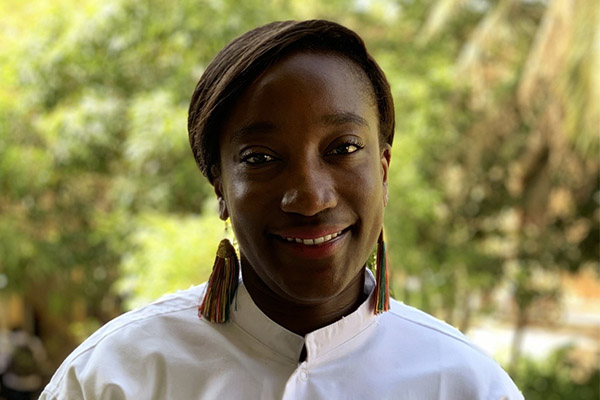During each rainy season, despite the use of preventive methods against malaria, Dinkorma Toure Ouologuem, faces erstwhile energetic children lying in bed, flattened by malaria. Once given medicine, they recover after a few days. But before the end of the malaria transmission season, they often experience a second episode. In Mali, artemisinin-based combination therapies are still used, despite their inability to prevent recurrent episodes due to lack of blocking transmission activity. Thus, Dinkorma’s work focuses on the search for new drugs or vaccines that will help prevent the transmission and re-transmission of malaria.
The search for new treatments
Her research project is not meant to be a simple contribution to the fight against this scourge by traditional means (prevention, treatments with molecules already known and marketed) but rather as a search for future treatments, "knowing that this future is very close, because of malaria resistance already known.”
|
At a glance
Project reveals 14 parasitic proteins associated with parasite transmission. The functional characterization of these proteins can provide a potential target for drugs and vaccines that block malaria transmission.
Artemisinin-based combination therapy (ACT) is the first-line treatment for P. falciparum malaria. However, these treatments offer little or no activity against the forms of the parasite transmitted to the mosquito and therefore do not allow for blocking transmission of the parasite. And the two antimalarial drugs in current use, "primaquine” and “tafenoquine", which have been shown to prevent transmission, may be toxic to patients with glucose-6-phosphate dehydrogenase (G6PD) deficiency, a genetic disorder with high prevalence in malaria endemic areas.
To fight malaria efficiently, it is urgent to identify new drugs and/or vaccines that will block the transmission of the Plasmodium parasite to its host.
|
Understanding the biological mechanisms of transmission
Dinkorma is an Assistant Lecturer in Cell Biology at the Faculty of Pharmacy in Bamako, Mali. She is also a postdoctoral fellow at DELGEME and is currently conducting research at Mali's Malaria Research and Training Center (MRTC). DELGEME is one of the 12 programmes funded through DELTAS Africa, a scheme of The African Academy of Sciences. Implemented with the support of Wellcome and DFID. Her research project seeks to identify Plasmodium factors influencing the infectivity of parasites in the mosquito. In the first stage of her study, she collected Plasmodium parasites in the field and conducted mosquito feeding tests to assess the ability to infect mosquitoes in controlled conditions. Thus, to understand the biological mechanisms underlying parasitic transmission, Dinkorma has used advanced tools in genomics, proteomics and bioinformatics.
A successful study outcome
Her project revealed 14 parasitic proteins associated with parasite transmission. The work identifies biomarkers to evaluate malaria transmission because the functional characterization of these proteins can provide a potential target for drugs and vaccines that block malaria transmission.
This study is important because it draws attention to malaria transmission with a special focus on the development of drugs and vaccine therapies targeting forms of the transmissible parasite. For this, artemisinin-based combination therapy (ACT) is the first-line treatment for P. falciparum malaria. However, these treatments offer little or no activity against the forms of the parasite transmitted to the mosquito and therefore do not allow for blocking transmission of the parasite. The two antimalarial drugs in current use, "primaquine” and “tafenoquine", which have been shown to prevent transmission, may be toxic to patients with glucose-6-phosphate dehydrogenase (G6PD) deficiency, a genetic disorder with high prevalence in malaria endemic areas.
Dr. Dinkorma observes that, "in order to fight malaria efficiently, it is urgent to identify new drugs and/or vaccines that will block the transmission of the Plasmodium parasite to its host". The aim of her project is to identify new targets for drugs to block transmission and/or a vaccine by studying the relevant plasma factors of the parasite infectivity in the field.
Dr. Dinkorma’s work is important because it has highlighted 14 parasitic proteins associated with parasitic transmission in malaria. Thus, it provides potential biomarkers for assessing malaria transmission. These biomarkers can be used in turn to determine the impact of transmission-blocking strategies in malaria-endemic areas. Once the function of these proteins has been characterized, it can be used as a target for the development of antimalarial drugs or vaccines.
Future impact
The next step is to further characterize the function of these candidate biomarkers. The functional study will validate certain proteins as targets for drugs and vaccines that have the potential to block the transmission of malaria.
This work is particularly exciting because the function of the candidate proteins is unknown, and has not previously been associated with the transmission of malaria.

